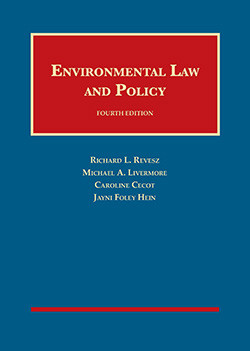-
Court Blocks Rule Making Harmful Changes to Title X Women’s Health Services
The Institute for Policy Integrity helped contribute to a significant legal victory, as district courts in Washington State, Oregon, and California blocked a Trump administration rule that makes harmful changes to federally-funded women’s health services. In February, the Department of Health and Human Services (HHS) announced onerous restrictions to its Title X program, likely forcing the shutdown of some family planning clinics and closing off access to others for low-income women. We submitted comments on the rule and amicus briefs supporting requests for preliminary injunction in four court cases. The Eastern District of Washington refers to our brief in the reasoning for its decision to grant an injunction. The Northern District of California’s ruling cites our brief and devotes a lengthy discussion to the arguments we advanced.
-
Amicus Brief on Interstate Air Pollution
The Environmental Protection Agency (EPA) recently finalized the “Close-Out Rule,” a rule refusing to impose any additional reductions in interstate ozone air pollution under the Good Neighbor Provision of the Clean Air Act. We submitted an amicus brief to the U.S. Court of Appeals for the D.C. Circuit explaining how EPA’s decision to not require pollution reductions is irrational and devoid of adequate analysis.
-
Testimony to New Jersey Legislature on Valuing Climate Impacts
Peter Howard and Denise Grab both provided testimony at an April 25 New Jersey State Legislature hearing on climate change mitigation and what the state can do to address greenhouse gas emissions. They discussed how New Jersey can contextualize and weigh climate impacts by using the social cost of greenhouse gases.
-
Comments to BLM on Environmental Impacts of Federal Oil and Gas Leases
In response to a District Court order, the Bureau of Land Management (BLM) recently prepared a Supplemental Environmental Assessment (EA) for five federal oil and gas leasing decisions issued in 2015 and 2016. We submitted comments that focus on the agency’s failure to adequately quantify greenhouse gas emissions and monetize their climate impacts.
-

Environmental Law and Policy, 4th Ed.
This casebook emphasizes environmental policy, as well as the structure and details of the federal environmental statutes. It focuses students’ attention on how tradeoffs between environmental goals and social goals are resolved in different and difficult contexts. The book has been updated to reflect new developments in the law of natural resource management, water pollution, and climate change.
-
Comments to EPA on Reconsideration of Mercury and Air Toxics Standards
The Environmental Protection Agency (EPA) is proposing to withdraw a prior finding that it is “appropriate and necessary” to regulate power-sector emissions of mercury and other “air toxics” under the Clean Air Act. We submitted comments arguing that EPA has failed to provide a reasoned explanation for this change of course.
-
Comments on California Public Utilities Commission’s New Analysis Framework
We recently encouraged the California Public Utilities Commission (CPUC) to clarify aspects of its new process for evaluating the social costs and benefits of energy resources. As we discussed in prior comments, the proposed analysis framework, the Societal Cost Test (SCT), will help the Commission to make investments that provide the greatest welfare benefits. Our new comments ask CPUC to provide some additional information in the SCT proposal.
-
Comments on the Replacement of the Clean Water Rule
The Environmental Protection Agency (EPA) and Army Corps of Engineers are proposing to replace the 2015 Clean Water Rule with a new rule that would harm many waterways by removing critical federal protections. We submitted comments detailing how the agencies provide flawed analysis in support of the proposal. Dr. Peter Howard and Dr. Jeffrey Shrader also submitted an expert report detailing the flaws in the agencies’ new valuation of wetland benefits.
-
Comments to DOE on Energy Conservation Standards for Direct Heating Equipment
The Department of Energy (DOE) recently issued a request for information on the energy conservation standards for direct heating equipment. We submitted comments that advise the Department to monetize climate benefits from greenhouse gas emissions reductions and discuss market-based approaches to energy conservation standards.
-
Amicus Brief in Atlantic Coast Pipeline Case
If constructed, the Atlantic Coast Pipeline Project would be responsible for greenhouse gas emissions resulting in over $1.3 billion per year of climate damages. The Federal Energy Regulatory Commission’s (FERC) analysis estimates the quantity of the project’s emissions but does not analyze the context, intensity, or significance of the incremental climate damages they will cause. We submitted an amicus brief to the U.S. Court of Appeals for the D.C. Circuit that explains how FERC’s failure to monetize the project’s climate damages using Social Cost of Carbon (SCC) estimates is arbitrary.






